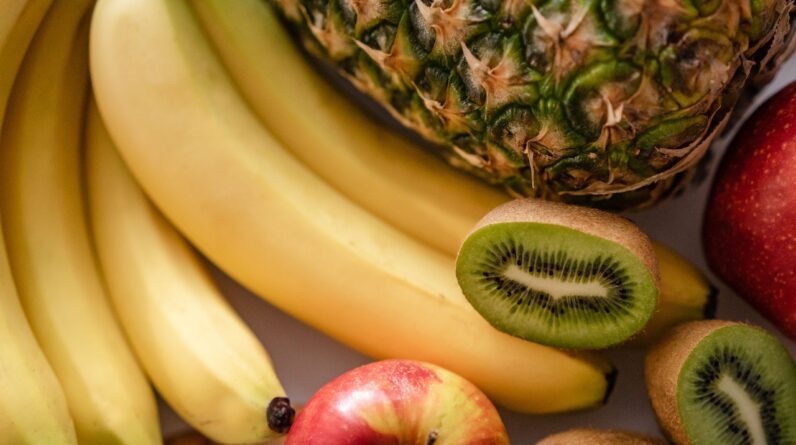
Introduction
Losing weight is not just about looking good; it’s about feeling good and being healthy. Carrying excess weight can put you at risk for a variety of health problems, including heart disease, diabetes, and high blood pressure. However, the process of losing weight can be overwhelming, and it’s easy to get discouraged. In this guide, we’ll provide you with the information and tools you need to lose weight in a healthy and sustainable way.
Understanding Weight Loss
Before you start your weight loss journey, it’s essential to understand what weight loss is and how it works.
Calories and Weight Loss
At its core, weight loss is about creating a calorie deficit. This means burning more calories than you consume. When you create a calorie deficit, your body is forced to use stored energy (i.e., fat) to make up the difference, resulting in weight loss.
Metabolism and Weight Loss
Your metabolism plays a crucial role in weight loss. Your metabolism is the rate at which your body burns calories to maintain basic bodily functions. When you eat food, your body uses the calories in that food to fuel your metabolism. However, your metabolism can vary from person to person, depending on factors such as age, sex, and genetics.
Creating a Calorie Deficit
To lose weight, you need to create a calorie deficit. This means consuming fewer calories than your body burns each day. There are three primary ways to create a calorie deficit: reducing your calorie intake, increasing your calorie burn, or a combination of both.
Calculating Your Calorie Needs
To create a calorie deficit, you first need to know how many calories you need to maintain your current weight. You can use an online calculator to estimate your daily calorie needs based on your age, sex, weight, height, and activity level.
Reducing Your Calorie Intake
One of the most effective ways to create a calorie deficit is to reduce your calorie intake. This can be achieved by making small changes to your diet, such as eating smaller portions, cutting back on high-calorie foods, and increasing your intake of fruits and vegetables.
Increasing Your Calorie Burn
Another way to create a calorie deficit is to increase your calorie burn. This can be achieved through exercise, which burns calories and can help you build muscle, which in turn can increase your metabolism.
Building Healthy Habits
To lose weight and keep it off, you need to build healthy habits. Here are some essential habits to focus on:
Eating a Balanced Diet
A balanced diet includes a variety of nutrient-dense foods, such as fruits and vegetables, whole grains, lean proteins, and healthy fats. It’s also important to limit your intake of processed and high-calorie foods.
Exercising Regularly
Regular exercise can help you burn calories, build muscle, and improve your overall health. Aim for at least 30 minutes of moderate-intensity exercise most days of the week.
Managing Stress
Stress can trigger overeating and make it harder to stick to healthy habits. Practice stress-management techniques, such as meditation or deep breathing exercises, to help manage stress.
Getting Enough Sleep
Lack of sleep can disrupt your metabolism and make it harder to lose weight. Aim for at least seven hours of sleep each night to support weight loss.
Tracking Your Progress
To stay motivated and track your progress, it’s essential to monitor your weight loss. Here are some ways to do so:
Weighing Yourself
Weigh yourself regularly, but not obsessively. Aim for once a week to monitor your progress.
Measuring Your Body
In addition to weighing yourself, measure your body using a tape measure to track changes in your body composition.
Conclusion
Losing weight can be a challenging journey, but it’s worth it for your health and well-being. By creating a calorie deficit, building healthy habits, and tracking your progress, you can achieve your weight loss goals in a healthy and sustainable way.
FAQs
- How quickly can I expect to lose weight?
- It depends on various factors, such as your starting weight, calorie deficit, and exercise routine. Aim for a slow and steady weight loss of 1-2 pounds per week.
- Can I still eat my favorite foods while losing weight?
- Yes, you can still enjoy your favorite foods in moderation while losing weight. It’s all about balance and portion control.
- Do I need to exercise to lose weight?
- While exercise is not necessary for weight loss, it can help you burn more calories and improve your overall health.
- Can I lose weight without cutting calories?
- It’s difficult to lose weight without creating a calorie deficit. However, you can reduce your calorie intake by making small changes to your diet, such as cutting back on high-calorie foods and increasing your intake of fruits and vegetables.
- Is it possible to lose weight and keep it off?
- Yes, it’s possible to lose weight and keep it off by building healthy habits and making sustainable lifestyle changes.
- Plateaus can happen when your body adjusts to your new eating and exercise habits. To avoid plateaus, try changing up your exercise routine, increasing the intensity of your workouts, or adjusting your calorie intake.
- Should I try fad diets to lose weight?
- Fad diets may promise quick weight loss, but they are not sustainable or healthy. Instead, focus on creating a calorie deficit and building healthy habits for long-term success.
- Can stress affect my weight loss?
- Yes, stress can trigger overeating and make it harder to stick to healthy habits. Practice stress-management techniques to help manage stress and support weight loss.
- Is it necessary to count calories to lose weight?
- While counting calories can be helpful for some people, it’s not necessary for everyone. You can create a calorie deficit by making small changes to your diet, such as cutting back on high-calorie foods and increasing your intake of fruits and vegetables.
- What are some healthy snacks to eat while trying to lose weight?
- Some healthy snack options include fruits, vegetables with hummus or salsa, nuts, and Greek yogurt with berries.







